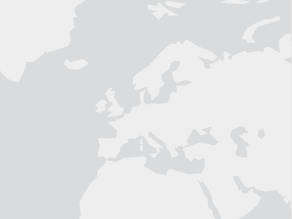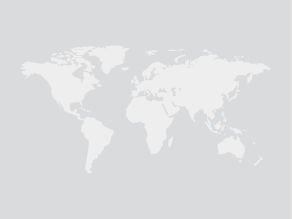Unifrance, the think-tank Notre Europe - Jacques Delors Institute and the German IFA present today November 20th a report on the diffusion of European cinema within the UE and on the international markets.
The European Commission has recently renewed its members, the new Creative Europe programme is being implemented, and the application of the territorialised funding principle has been confirmed. On this basis, the European think tank Notre Europe - Jacques Delors Institute, along with the ifa (Institut für Auslandsbeziehungen – Institute for International Cultural Relations) and uniFrance films (the French film export agency) publish a report on the dissemination of European cinema in the European Union and the international market, written by Josef Wutz, an expert for the international distribution of films.
The report was presented today during the Franco-German Film Meetings in Leipzig, with Costa Gavras, filmmaker and president of the Cinémathèque Française, who signed the foreword of the report, Yves Bertoncini, director of Notre Europe - Jacques Delors Institute, Sebastian Körber, deputy general secretary of the IFA and Jean-Paul Salomé, president of Unifrance.
The report aims to take stock of the dissemination of European films in European countries and in the world from 2002 to 2014. It takes all those working in the film industry into account and focuses on four countries: Germany, Spain, France and Italy. Valentin Pérez then makes recommendations which aim at raising the profile of the European film industry.
The conclusion of this report is clear: it is only by providing additional support, notably in the distribution sector, combined with an effective and responsible regulatory system, that national movie industries will be able to flourish. The goal is to strengthen the desire and demand for the diversity that typifies European cinema today (fiction, documentaries, animation, and so forth), in the European Union but also in the world.
Three recommendations appear as vital to improving the conditions to secure the diversity and the circulation of European films:
1. Providing better support to European movie theatres
Strong and decisive action to provide better support is critical for the ongoing development of a strong network of movie theatres in Europe that offers audiences films that reflect the richness of global movie production in all its diversity.
2. Reinventing a regulatory system that is in tune with our economic and technological era
The need for increased funding support for the distribution of European films within and outside Europe must be addressed swiftly to ensure that the visibility of our films is not confined to their country of origin.
3. Giving European productions a central place in public television programming and stimulating new distribution channels
Public broadcasters must serve as platforms for the provision of cultural content and associated tools and services must be developed to ensure that European cinema does not fall by the wayside as video-on-demand continues to prosper.
Notre Europe - Jacques Delors Institute is the European think tank founded by Jacques Delors in 1996. Its aim is to produce analyses and proposals targeting European decision-makers and a wider audience, and to contribute to the debate on the European Union by publishing numerous papers, videos and sounds, organise and take part in seminars and conferences throughout Europe, and make appearances in the European media via our presidents, director and team. (www.eng.notre-europe.eu/)
Founded in 1949, Unifrance is a non-profit association, based in Paris, with agents in New York, Mumbai, Beijing and Tokyo, promoting French cinema worldwide. This association gathers more than 950 French industry professionals (producers, talents, sales agents, etc.) who promote and support their films with respect to the audiences, industry and international media. (en.unifrance.org/)
The IFA (Institut für Auslandsbeziehungen) is committed to a peaceful and enriching coexistence of people and cultures worldwide. It is promoting art and cultural exchange in exhibitions, dialogue and conference programs. As a competence centre for foreign cultural diplomacy, the ifa is connecting civil societies, cultural practices, art, media and science. It is initiating, moderating and documenting discussions on the international cultural relations. The report was supported by ifa’s Research Programme “Culture and Foreign Policy”, in which experts carry out research on central issues and fields of foreign cultural and educational policy. It is supported by the Federal Foreign Office of the Federal Republic of Germany, the state of Baden-Württemberg and its capital Stuttgart. (www.ifa.de/en.html)
Download
Rapport version française





















